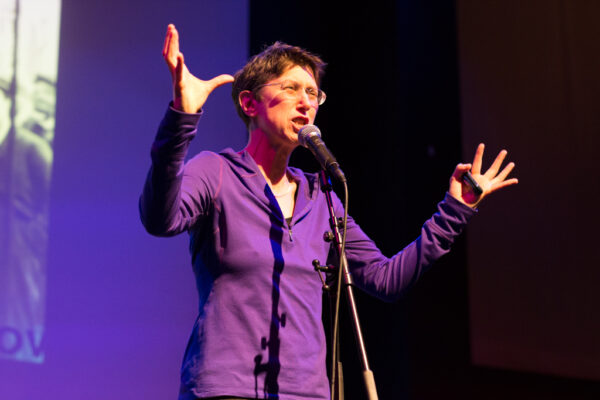This talk illustrated with song, examines the abundance of poems, songs and verse written in pre-first world war London. Penned by the famous and the unknown, they tell tales of immigrant culture in flux, anglicising to British norms yet containing aspects of the wider Yiddish-speaking world. Morris Winchevsky’s poetry displays his strategies for disseminating revolutionary socialist ideas and supporting union action. Music-hall songs hint at the changing form of sexual relationships, and the problems of marital disharmony and abuse. Satirical verse portrays how immigrants grappled with modernising religious practice. And these stories are told with humour, intensity, and passion.
Vivi Lachs
Vivi Lachs is a historian, Yiddishist and performer. She currently holds a post-doc research position at Queen Mary, University of London concerning the history of the Jewish East End through Yiddish sources. Her books on the subject are Whitechapel Noise: Jewish Immigrant Life in Yiddish Song and Verse, London 1884-1914 and her recently published London Yiddishtown: East End Jewish Life in Yiddish Sketch and Story, 1930-1950. Vivi performs Yiddish song and records with the bands Klezmer Klub (Whitechapel, mayn Vaytshepl)andKatsha’nes (Don’t Ask Silly Questions). She runs the Great Yiddish Parade bringing Yiddish songs of protest and union activism of the 1890s back onto the streets of London.


